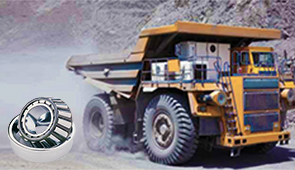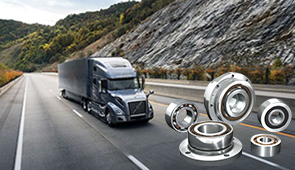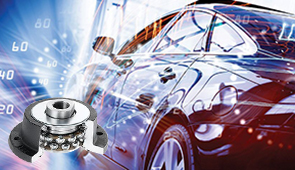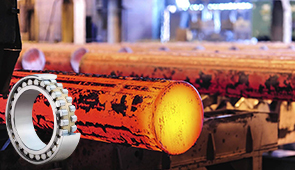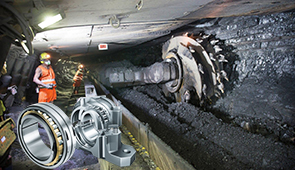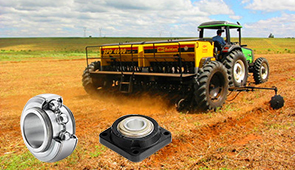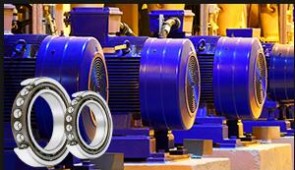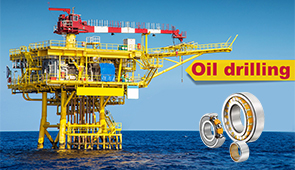What causes bearing noise
The bearings are the most important part of the machine. They are used to transfer the rotational motion from one shaft to another, and therefore, they must be of high quality.
The bearing has a large number of rolling elements and cages that support them. The rolling elements are made of steel and they roll on the raceways of the bearings. The cages are made of hardened steel and are designed to provide stability against torque, support axial loads, distribute radial loads evenly and protect the rolling elements from dirt and other contaminants.
Noise in a bearing can be caused by a number of factors. The most common reasons for bearing noise are:
The ball or raceway of the bearing is rough or damaged.
The ball or raceway of the bearing is rough and damaged, which makes the bearing make noise. The roughness of the raceway can be divided into two types: one is a slight roughness; another is a deep groove.
The former is mainly caused by poor lubrication and poor lubrication, so that the spherical surface is not smooth enough. For example, when the shaft rotates, it presses against the inner ring and causes slight deformation in the spherical surface of the inner ring to form a small groove. After repeated use, this groove will be enlarged due to friction between the two surfaces, resulting in an obvious noise. The latter is mainly caused by improper design or improper processing during production process. For example, if there are too many defects on the surface of the steel balls during processing or if there are too many pores in the steel ball surface after hardening treatment (hardened), then there will be pores in the spherical surface after hardening treatment (hardened). When using this ball bearing for rotation with high speed and heavy load conditions, these pores will easily cause excessive wear on their surfaces when rotating with high speed and heavy load conditions, causing deep grooves on their surfaces causing serious noises.
Contamination inside the bearing
The most common cause of bearing noise is contamination inside the bearing. Contamination can come from many sources, including:
The grease or oil used to lubricate the bearing. If the grease or oil is contaminated with dirt and grit, it will wear out faster and make more noise.
Dirt and grit that gets into the bearing through improper installation or handling. This can include dirt blown into a bearing during installation or handling by untrained personnel, or grit that settles out of the air onto a clean surface.
Water in a lubricated-for-life bearing that has been exposed to high temperatures may boil when you lower its temperature (i.e., when you turn off your car). This causes water vapor bubbles to form in the oil film on the inner race of your bearings and make them noisy until they boil away again after being cooled down again at higher speeds or under load (such as driving on a hot day).
Insufficient lubrication
The most common cause of bearing noise is insufficient lubrication. The bearings need to be properly lubed to prevent the formation of metal-to-metal contact between the shaft and bearing, which can lead to premature wear or failure. Insufficient lubrication also causes excessive operating temperature, which can result in reduced bearing life and increased maintenance costs.
Lubrication requirements vary with application, type and size of equipment, as well as ambient conditions such as temperature and humidity. In general, however, bearings should be lubricated every time they are inspected or serviced. In addition to periodic servicing, bearings should be adequately lubed when they are installed in new equipment or moved from one piece of equipment to another.
Bearings not properly aligned
The alignment of the bearings is critical to the smooth operation and longevity of any machine. If your bearings are poorly aligned, they will run rough and make a lot of noise. This can be caused by many factors, including improper installation or damage during use. Here are some things to look for when trying to determine if your bearings are misaligned.
If you hear a grinding sound when attempting to move either the shaft or housing, it is likely that one or more components in the bearing assembly have been damaged. A grinding sound often indicates that there is some sort of physical contact between moving parts, which can cause damage over time.
A clicking sound coming from a bearing usually indicates that there is some kind of debris caught in between two surfaces that should not be touching each other. This can happen if something gets caught in between two bearing surfaces while they are moving together, or if dirt falls into the space between them during use.
If you hear a screeching noise when attempting to move either the shaft or housing, this may mean that your bearings have become too tight or too loose within their housings. In many cases, this can be caused by over tightening during installation or maintenance procedures.
Incorrect radial clearance
Radial clearance is the distance between the shaft and housing bore. Radial clearance is determined by measuring the radial play of the bearing bore and shaft assembly. The difference in size between the shaft and housing bore must be considered when determining radial clearance.
A small amount of radial clearance is necessary to maintain proper lubrication within a bearing. Too much radial clearance will cause excessive wear on both sides of the assembly.
Improper radial clearance causes overheating, which leads to premature failure of the bearing. Excessive heat can also cause excessive noise and vibration in an assembly.
Installation error
There are many reasons for bearing noise. One of the most common causes is installation error.
Bearing noise can be caused by a number of things, but one of the most common is installation errors. If the bearings are installed incorrectly, they will not be able to support the load and heat generated by them.
The bearings must be placed in the right position and angle so that they do not load on each other or rub against each other. If there is too much friction between them, it will cause them to wear out faster as well as generate more heat. This leads to premature failure of the bearings and higher costs for maintenance later on down the road.
The reason for the bearing to produce noise is because the operation of the bearing has exceeded the boundary, this is mainly caused by too high speed rotation, or by external damage or friction, other reasons such as poor maintenance and equipment operation, resulting in rough rotation of the bearing, that is, in addition to maintenance and environmental factors, there are other factors.
UCTH213-40J-300 with Setscrew(inch)
CNSORDERNO: Normal-duty(2)
TOGN: UCTH213-40J-300
SDI: B-R1/8
SD: 2 1/2
UCTH212-39J-300 with Setscrew(inch)
CNSORDERNO: Normal-duty(2)
TOGN: UCTH212-39J-300
SDI: B-R1/8
SD: 2 7/16
UCTH212-38J-300 with Setscrew(inch)
CNSORDERNO: Normal-duty(2)
TOGN: UCTH212-38J-300
SDI: B-R1/8
SD: 2 3/8
UCTH212-36J-300 with Setscrew(inch)
CNSORDERNO: Normal-duty(2)
TOGN: UCTH212-36J-300
SDI: B-R1/8
SD: 2 1/4
UCTH211-35J-300 with Setscrew(inch)
CNSORDERNO: Normal-duty(2)
TOGN: UCTH211-35J-300
SDI: B-R1/8
SD: 2 3/16
UCTH211-34J-300 with Setscrew(inch)
CNSORDERNO: Normal-duty(2)
TOGN: UCTH211-34J-300
SDI: B-R1/8
SD: 2 1/8









